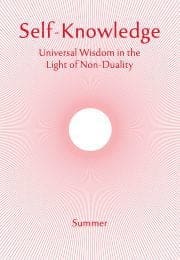Dharma – A Candle on the Way
Dharma is a powerful word that is used in three of the world’s main religions: Hinduism, Sikhism and Buddhism. It can mean the Way or Path that is the form of spiritual practice we have chosen to adopt. Dharma also sometimes refers to religion itself, as when Hindus speak of the eternal wisdom, the Sanatana Dharma.
Within this wide arch of meanings associated with faiths, or schools of thought, the word refers to the quality of the duty and righteousness we pour into our daily life. This can make dharma seem hard work—something we ought to be doing rather than what we enjoy doing. In this form it resembles a set of values imposed from outside, subject to others’ scrutiny and criticism, and even giving rise to a disguised hypocrisy in order to create a good impression.
But this form of dharma, as an irksome restriction on our freedom, is not the true nature of the practice, nor does it help us in any profound way. The true value of dharma is as a vehicle of inner progress, itself calling for different forms of expression as our understanding expands and deepens. In this respect, dharma may be explained as that mode of action, thought and speech most suited to our present stage of development, and best calculated to lead us on to the next stage. If this sounds like no more than the way that advance occurs in the world, this is not really the case. The world judges on appearances and impressions; the development made possible through dharmic sincerity is inward and hidden, sensed only by its possessor.
The presence of the dharmic principle in human nature means that everyone has his or her moral compass set within the heart, so to say, and does not need an outer corrector to put things right (or expose their wrong). The wise observer within us will give guidance if we remember to open our mind to its influence. The French writer, Jacques Lusseyran, in a book* about his wartime experiences, notes:
I could no longer afford to be jealous or unfriendly, because, as soon as I was, a bandage came down over my eyes… But when I was happy and serene, approached people with confidence and thought well of them, I was rewarded with light… Armed with such a tool, why should I need a moral code?
The writer was physically blind, but inwardly far-seeing. Perhaps his blindness helped to bring about a greater sensitivity, but what he is reporting is a faculty of right judgement potential in every human heart. He calls it the ‘bright signal’, and it needs only to be exercised in order to prove its veracity.
Such faculties are not confined to our outer life and its dealings with others. The light is also an inner guide and thus dharma becomes the means of progress towards the ultimate goal of Self-realisation. In this way, dharma will be like our candle on the way. In the words of the great Sufi mystic Jalaluddin Rumi:
The Religious Law [Dharma] is like a candle showing the way.
Unless you gain possession of the candle,
there is no wayfaring;
and when you have come on to the way,
your wayfaring is the Path;
and when you have reached the journey’s end,
that is the Truth…
* And There Was Light, Floris Press, Edinburgh, p 13.


